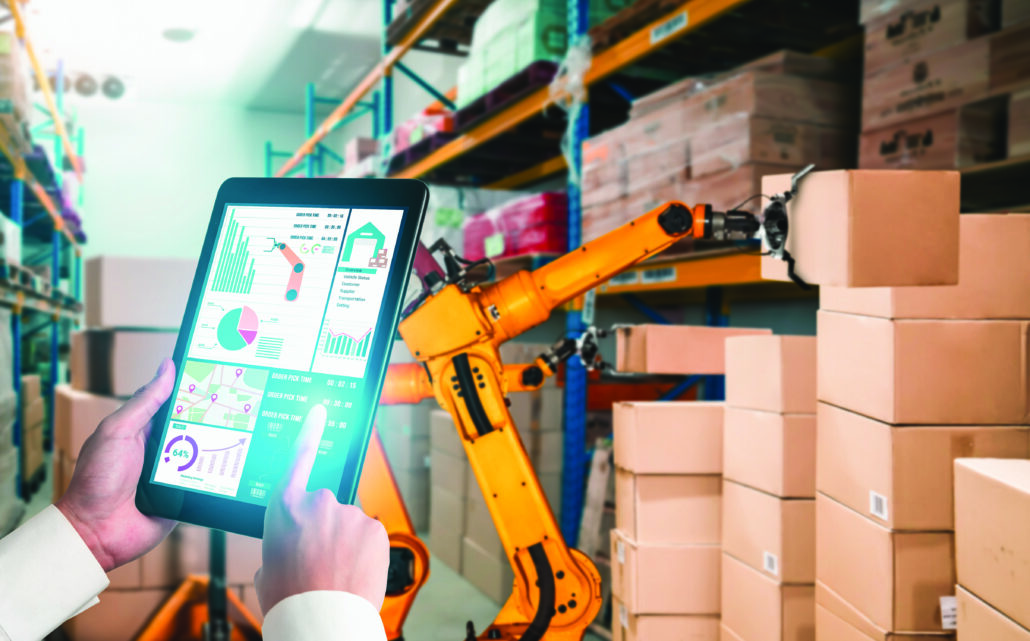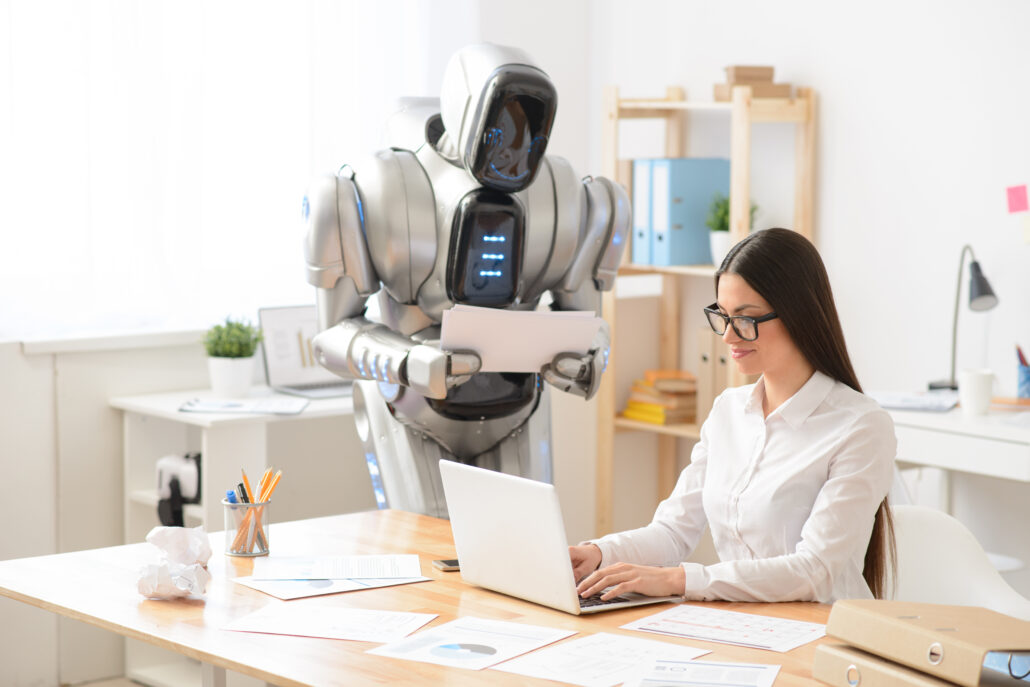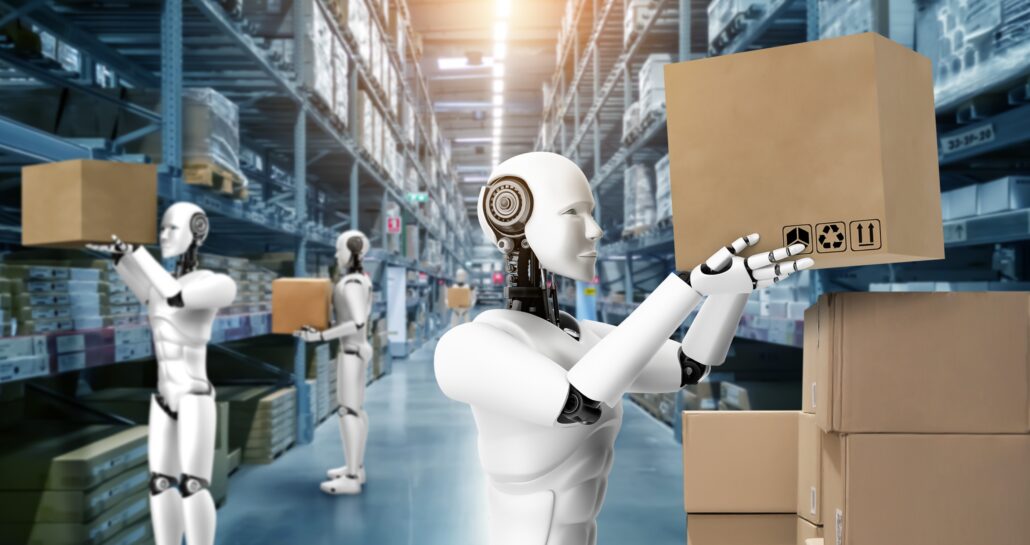
How the Workplace Will Change in 50 Years
By Benjamin Roussey

No century in recorded history has seen so many radical socio-economic transformations as the 20th century. There is another revolution currently under way: the changing work organizations. The existing workplaces were built on the model of the Industrial Revolution, but they are no longer very effective in today’s global, networked, technology-driven economy.
In the next 50 years, technology is going to make gigantic leaps that will change the workplace as we know it today. If automated solutions like Siri and Alexa are any indicators, the idea of a digital assistant trained in intelligent work performance is not just a futuristic vision anymore. Great minds of our times are already working on technologies to change the way humans function. But how will this translate to the work culture, work ethic and the work organization over the coming decades? Let’s find out.
Robots in the workplace
Restaurants across the country are introducing automated kiosks to take food orders, in response to tight labor markets. Rather than using the services of a waiter, customers are now placing orders through their smartphones. It’s not hard to see why restaurant executives are loving this – unlike human workers, computer kiosks never show up late, never take a vacation, and there is never a risk of age/sex/race discrimination.
In 2018, McDonald’s announced its plans to install digital ordering kiosks in place of cashiers and mobile ordering services at thousands of its stores. Amazon has also replaced cashiers in their storefront locations; customers can use an app to check in to the store and walk out with what they need, without having to interact with a cashier.
The truck driving and distribution industry has also joined the ranks of those using robots instead of humans. Picking up items is the biggest labor cost in most e-commerce distribution facilities, and tends to be least automated. Now with robots, organizations are able to move heavy racks, locate products for shipping, and place the relevant items in a box, all without human intervention.
A factory in China, run by the Changying Precision Technology Company, has almost completely automated their production lines that use robotic arms to manufacture parts for cell phones. A handful of human workers oversee the production line, while 60 robots perform the tasks that used to take 650 employees. If that wasn’t mind-blowing enough, get this: the robots have increased the factory’s annual production from 8,000 phones to 21,000 phones, reducing the defect rate from 25% to 5% in the process!
The fact that using robots cuts labor costs and increases efficiency to an exorbitant level is why corporations around the world will be embracing them over the next decades. This will help battle soaring fuel costs and inflation levels that have been gut wrenching.
 Digital expertise in high demand
Digital expertise in high demand
Talking about robots naturally brings us to our next point: the most high-value work in the future will be cognitive in nature. Being a hard worker will not be enough. People whose jobs require a lot of repetitive, redundant work are likely to be replaced by tools and bots. Elon Musk, the Tesla CEO and tech visionary, famously predicted that robots will be able to do everything better than us.
If you currently work in accounting, paralegal work, fast food preparation, operating machinery, back-office transaction processing, or mortgage origination, it’s highly unlikely that you’ll be working that job in 50 years. No, not because you’ll have retired by then, but because robots would have replaced you.
In the future, better-paying jobs will go to cognitive, creative workers who specialize in critical thinking and digital skills. We are hurtling towards a total digital economy where logical reasoning and advanced problem-solving skills will determine the value of a worker.
Employees who want to keep up, will need to adopt a continuous-learning mindset and upgrade their skills to include data warehousing, AI, and cloud computing capabilities, just to name a few.
New career opportunities
All this talk of robots replacing your job may sound terrifying but look at the history and you’ll realize that this fear has always been unfounded. Over time, labor markets tend to adjust to changes in demand for workers that occur due to technology-led disruptions. A report published by Dell Technologies, the Institute For The Future (IFTF), and a panel of 20 tech, academic, and business experts from around the world, states that 85% of the jobs that will exist in 2030 haven’t even been invented yet!
Nobody has a crystal ball but the direction technology is going, and based on the current data, roles like self-driving car mechanic, Augmented Reality (AR) journey builder, quantum computer programmer, human-machine team manager, commercial space pilot, and telesurgeon may open up sooner than you think.
The whole concept of a career will be redefined in the future. It’s possible that instead of deciding on a “profession” or “career” in their late teens or early 20s like we do now, people will instead choose to learn a trade, a skill, or master a specific area of knowledge to apply for the next few years and repeat this cycle several times throughout their professional life.
 Purpose- and passion-driven employees
Purpose- and passion-driven employees
More than 47 millions of Americans voluntarily quit their jobs in 2021, according to the US Bureau of Labor Statistics. This unprecedented mass exit of workers was so monumental, that’s it now being called the Great Resignation.
And if it has taught us one thing, it’s that the old corporate story of “Profit First” is no longer working for employees. The current bottom line is endless exploitation and expansion doesn’t support personal wellbeing and human wholeness.Workers are realizing that now.
Instead of waiting for retirement to do something meaningful in life, employees in future will want to do that earlier in their lives. This will mean seeking opportunities that tie their work to their passions, purpose, and mission. Successful companies will entice top talent not by just paying a higher salary, but also by offering them an opportunity to make important social impact.
Traditionally, most organizations have placed greater emphasis on their customers and shareholders. Leadership stakeholder priorities will change in the future, placing employees as their highest priority because happy, satisfied, and motivated employees are way more productive.
Wrapping it up
One thing is clear, both workers and employers across all industries are going to have to become much more agile, adaptable, proactive, and flexible. Job seekers will need to focus and invest in discovering their passions and potential career interests that align with their strengths. If you are an employer or organization, embracing technological innovations and mentoring your workforce with relevant training will help you hire and retain the perfect employees.
Benjamin Roussey is from Sacramento, CA but now lives in Arizona. He completed 4 years in the US Navy and has an MBA in Global Management. He has lived in South Korea and Suadi Arabia where he was an ESL instructor. Now he writes professionally for several clients that cover one sector of our economy to another – he also writes movie scripts. He enjoys sports, movies, reding, and current events when he is not working online.



